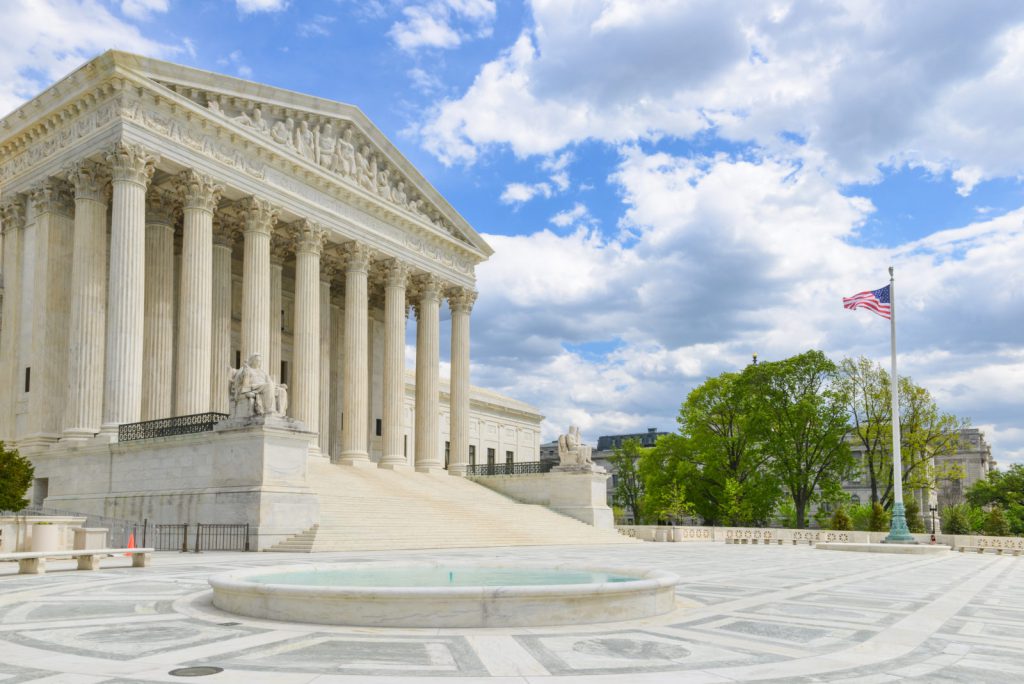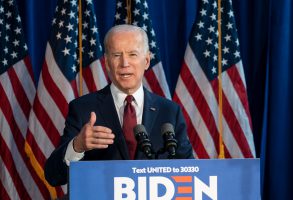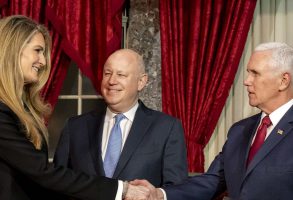
Published October 21, 2016
Because of what came later — Donald Trump’s refusal to say whether he’d accept the results of the election — Hillary Clinton’s similar, if somewhat less incendiary remark about our system’s legitimacy went nearly unnoticed.
Right out of the box, responding to a query from Chris Wallace about the Supreme Court (and let me add my voice to the general hosannas for his mature and professional conduct), Hillary Clinton implied that a Supreme Court decision she disliked, Citizens United v. FEC, “undermined the election system in our country because of the way it permits dark, unaccountable money to come into our electoral system.”
In this, she is echoing others in the Democratic party. Senator Bernie Sanders, put it this way:
Six years ago, as a result of the disastrous Citizens United Supreme Court decision, by a 5-to-4 vote, the U.S. Supreme Court essentially said to the wealthiest people in this country: You already own much of the American economy. Now, we are going to give you the opportunity to purchase the U.S. government, the White House, the U.S. Senate, the U.S. House, governors’ seats, legislatures, and state judicial branches as well.
He, in turn, was repackaging the misrepresentations of none other than President Obama, who chose to malign the United States Supreme Court from the well of the House of Representatives during his 2010 State of the Union address. Citizens United, he thundered, “allowed big companies — including foreign corporations — to spend unlimited amounts to influence our elections.” This is what caused a startled, and doubtless appalled, Justice Samuel Alito to shake his head and mouth the words “not true.”
It’s a dangerous and irresponsible thing to undermine confidence in the nation’s institutions. So glad that Democrats have discovered that this year. Perhaps now that they are hearing it from the mouth of Donald Trump, they will repent of their own recklessness.
Citizens United v. FEC concerned the constitutionality of the McCain/Feingold First Amendment–limitation (er, campaign-finance) law. The decision did not change the law forbidding foreigners from donating to American elections. At issue, appropriately enough, was a harshly critical movie about Hillary Clinton. Like many politicians (including Donald Trump), Clinton holds the position that there ought to be a law restricting such criticism. That’s what McCain/Feingold did, and that’s what the Court held violated the First Amendment.
Clinton suggests that the decision prevents Americans from knowing who is funding political activity. Citizens United did nothing of the kind. It simply ratified the concept that groups of Americans, whether they come together as labor unions, advocacy groups, or corporations of various kinds, do not lose their right to speak when they join together. Under campaign-finance laws, groups like Citizens United or People for the American Way were prohibited from running ads for or against candidates at any time, and McCain/Feingold extended this prohibition to prevent such groups from even mentioning a candidate in a broadcast ad within 60 days of a general election. The Supreme Court held that such political speech was the essence of the First Amendment.
Contra the Democrats, there is no secret about who is spending what on American elections. Candidates, parties, traditional PACs, and super PACs must all disclose their spending and their donors. When Democrats speak of “dark money” they are creating a bogeyman. Here’s what they’re referring to: When non-profits like Planned Parenthood, trade associations, or the NRA, i.e. groups that devote more than 50 percent of their activities to non-political matters, spend money on political messaging, they do not have to disclose their donors (except funds earmarked for that particular ad). As former SEC chairman Brad Smith explains, this represents a small fraction of total campaign spending. In 2012, it was 4.3 percent. In 2016, it’s coming it at under 3 percent. We know how much they spend, because they must report it. We know what they represent, or in the case of a group like Americans for Prosperity, we can easily find out. And nothing in the Citizens United decision altered disclosure requirements.
Citizens United upheld the most cherished right protected by the Constitution. The disclosure requirements in current law are more extensive than ever before in American history. Moreover, there are some pitfalls in total disclosure, such as exposing those with unpopular viewpoints to harassment. Democrats obscure these essential girders of free speech and demonize the case to suggest that a wealthy, obscure elite has hijacked the political system.
Donald Trump again signaled his contempt for democratic norms by declining to say he’d respect the results of the election. But Democrats, including Hillary Clinton, who stoke mistrust by falsely spinning conspiracy theories of illegitimate, dark forces controlling our system are also to blame for the parlous state of social trust in America.
— Mona Charen is a senior fellow at the Ethics and Public Policy Center. Copyright © 2016 Creators.com




